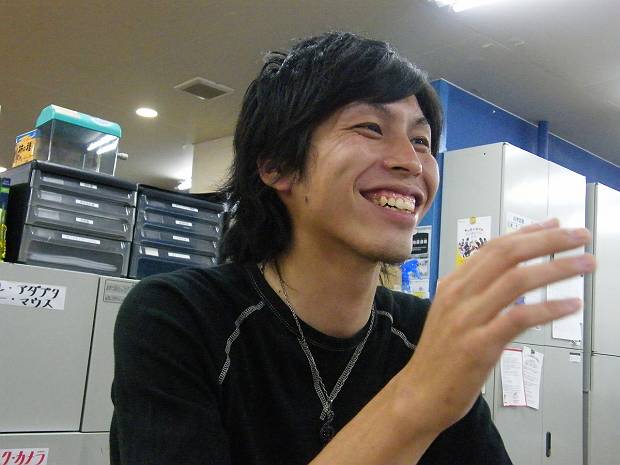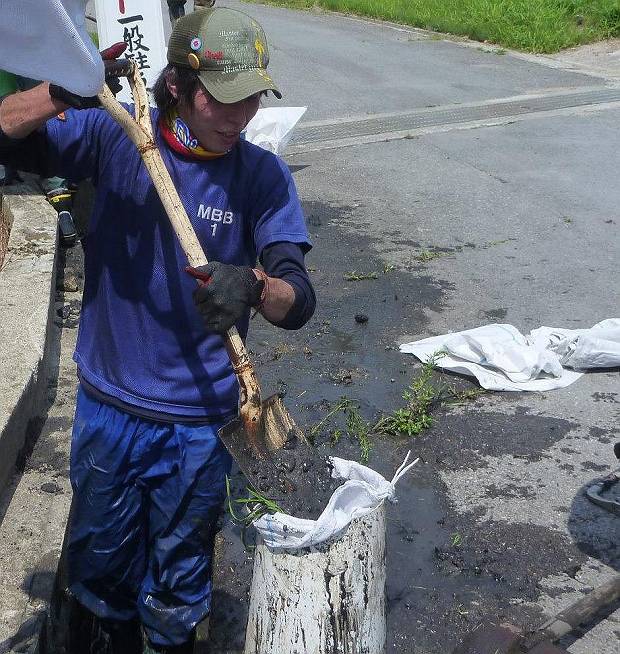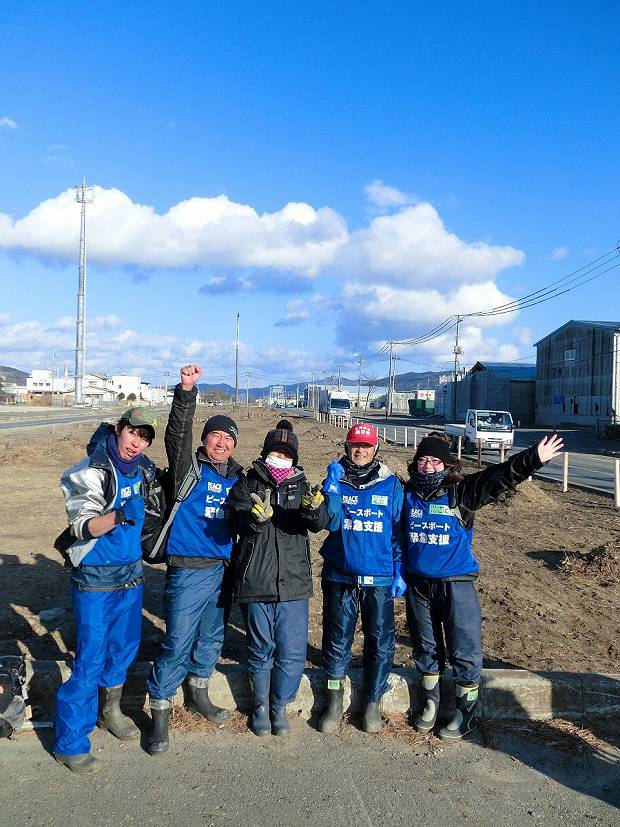
Activity Reports
Volunteer Interview – Anbai Yuhiro
October 31, 2012
“I’ve been all over the Tohoku region, but the reason I started to volunteer is because I believed that there is bound to be something that I can do from where I am. That’s why I got involved with supporting Tohoku logistically from Tokyo. Even now, I still believe that you can do something to help no matter where you are.”

Anbai Yuhiro
Originally from Iwate Prefecture, Yuhiro now lives in Tokyo. He has volunteered in each of the three prefectures that make up the Tohoku region, and he currently volunteers in the Peace Boat Disaster Relief Volunteer Centre office in Tokyo.
It has been over a year and a half since the disaster struck Eastern Japan, and many volunteers have been involved in the relief efforts in the disaster-affected region, as well as many others searching for ways to get involved in rebuilding the future of Tohoku. Mr Anbai, the subject of this interview, is one of them. We asked him about his reasons for continuing to volunteer, and why he started to volunteer in the first place.
Q: Why did you first get involved with volunteering?
A: Well, despite the fact that I’m from Iwate, which was affected by the disaster, immediately after the disaster struck I just really wanted to go to the affected area and help out. Unfortunately though I have a job here in Tokyo, so I couldn’t just drop everything and go straight away. That was frustrating. But I heard someone from Iwate on the radio say, “right now, just do what you can.” There were people in the region who wanted to work, but couldn’t. Students who wanted to go to school, but couldn’t. That really struck me. So, I went to one of the Peace Boat information sessions in the hope that there is something I could do from here in Tokyo. Consequently I became involved with behind the scenes support, like sending off the bus that took volunteers to Ishinomaki, or answering the phone in the office. That’s how I got started volunteering.
Q: And after that you went to Ishinomaki as a volunteer with ‘ap bank Fund for Japan‘ last May, which took you all over the Tohoku region, didn’t it?
A: Yes. Each trip was short, but I volunteered in Miyagi, Ofunato, Rikuzen Takada, Minami Sanriku, Minami Soma and Iwaki etc. I had been fortunate enough to be involved with behind the scenes volunteer support, but by going to the affected places I was able to learn about the support activities happening on the ground – the volunteers who go to help, the groups and organisations that coordinate the volunteers, the locals that they liaise with, and the people who support from behind the scenes by giving donations and sending relief goods.

Q:I also hear that this year you’ve been working with some others that you got to know through volunteering, and visited a kindergarten in Iwate, held a film event, and have been involved in lots of other new activities.
A: I really believe it’s important for people to learn about the reality on the ground in Tohoku for themselves. That applies to me, too. But, I felt uncomfortable with people taking photos of the disaster region, even though they were there as volunteers. So I got in touch with film directors and other representatives who are ‘recording’ and ‘conveying’ the disaster, and got involved in this process myself. I’ve helped out with two self-organised film screenings at ‘LIGHT UP NIPPON‘ and ‘Ishinomaki Municipal Minato Elementary School Evacuation Centre‘ so far. I’m really glad I did this because it wasn’t just fellow volunteers who came to the events. Friends and acquaintances from work and from when I was at university came, too.

Q: What are your plans for the future?
A: I just finished another self-organised film event the other day, so I haven’t started thinking about what’s next. I still have my job as well, so I can’t do too much because of time restrictions. Still, I think it’s important to stay involved over the long term, so I want to continue volunteering in Tohoku and Tokyo as much as my other commitments allow me to.
Q: Right. Volunteering is not something you’re forced to do, so in staying involved over the long term it’s important not to overstretch yourself. Finding the knack of staying involved as much as your other commitments allow, or volunteering only as much as feels right for you, is important. Thank you, Mr Anbai!



